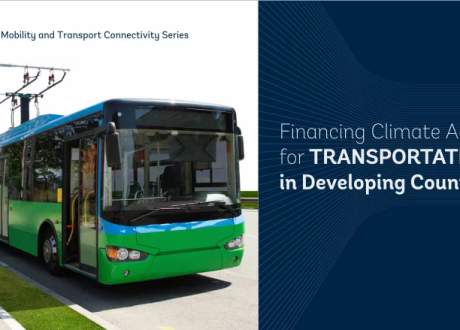
Egypt’s Abouleish among 100 Most Influential Africans 2024 in civil society
Egypt’s Helmy Abouleish, a prominent figure in the field of sustainable agriculture, particularly known for ...

From sustainably manufactured shoes to offsetting 75 years of carbon waste, these ten initiatives set the bar for this year’s most innovative companies in the category of corporate social responsibility.
For setting incredibly ambitious long-term carbon-neutrality goals
Going several steps further than most generic corporate climate pledges, not only is Microsoft promising to become carbon neutral by 2030—but also, by 2050, to remove all the carbon the company has ever emitted since its founding in 1975. It aims to do that by launching an innovation fund on new climate solutions, expanding its internal carbon fee, and helping suppliers and customers drive down their footprints. And, to achieve zero waste by 2030, it’s boldly promising to divert at least 90% of its landfill waste, and make all Surface devices fully recyclable.
For committing to eliminate plastic from its products, completely
By 2025, this retailer of natural products wants to be 100% plastic free. It started towards that goal in 2020, introducing a completely plastic-free line of household cleaning products, which instead use vessels of glass and aluminum. And, it launched Peach, its new personal care range of waterless, plastic-free, plant-based solutions with which it expects to have saved 70,000 pounds of plastic in less than a year of sales.
For staging virtual summer coding camps to foster tech curiosity in more kids
The company’s Capital One Coders summer program expanded its offering by 400% over the course of last summer, shifting to a virtual classroom model to engage primarily low-to-moderate income students in tech, using problem-solving approaches. Its expanded curriculum introduced an app inventor and a bot camp to teach about AI. They also equipped 2,500 families with much-needed digital connectivity at a time when many children without Wi-Fi access have struggled to attend virtual classes.

For industry-leading transparency about its carbon emissions
The consumer electronics design company has pledged” total carbon transparency,” committing to label its products with a footprint number. It’s shooting for those numbers—along with universally readable symbols—to be printed across its portfolio by 2025, allowing customers to make informed decisions and holding itself accountable.
For increasing access to free legal expertise during the pandemic
This Canadian legal cloud software company rolled out a pro-bono portal, in partnership with the American Bar Association, to connect lawyers to people in need of legal services for issues caused by the pandemic—including housing, access to unemployment benefits, and domestic violence. The innovation is part of Clio’s overarching mission to break down financial barriers to legal representation.
For bridging the “homework gap,” allowing low-income children to be connected at home
As the pandemic set in, Verizon Innovative Learning doubled down in its effort to provide under-resourced schoolchildren with their own in-built technology devices and free data plans, so they could comfortably engage in distance learning—thus combating the “digital divide” that has left so many low-income children relying on Wi-Fi from nearby buildings. They’ve also incorporated advanced tech into learning: while enrolled students in Miami acted as IT troubleshooters for school districts adjusting to virtual learning, others in Cleveland 3D-printed PPE for essential workers.
For applying its technical know-how to provide people with food and resources
Just as the pandemic set in, this tech ecosystem committed to pooling its specialized talent into creating digital programs to help marginalized communities access the essentials they desperately needed. Its software developers built an app to handle grocery requests and track food deliveries, allowing for 200,000 delivered meals across California’s Central Valley. Separately, it created a platform that matched recently unemployed people with jobs and resources—first popping up in California, with the help of Governor Newsom, and then across much of the U.S.
For devising creative pandemic aid and initiatives with materials it already uses
Putting $22 million of funds to use, the Brazilian beverage giant proved its ingenuity in a hurry as it sped to manufacture 284,000 liters of hand sanitizer using ethanol from its breweries, and 3 million face shields, made from a polymer it uses for bottling its Guaraná Antarctica soda. In the rural areas of Northeast Brazil, its regional beer brands and partners that make beer from cassava donated 20 tons of tapioca gum for food and soap from cassava starch to poor families.
For easing the transition, financially and culturally, from high school to college
For anyone with sights on higher-paying jobs, college degrees have become pretty much essential. But many struggle to afford them, and to adjust to university life, overwhelmed by the workload. The Level Up program at Lackawanna College in Pennsylvania gets high school students involved in “college rigor” early: they can study and earn college credits, at a fee of $100 per credit, making the eventual transition easier. When they do get to college—Lackawanna or otherwise—freshmen may have already saved between $15,000 and $50,000.
For crafting comfy shoes out of rice husks, algae, cork, and molasses
Aiming for its shoes to contain 80% “eco elements” by the end of 2021, Twisted X has been doing its part to drive down waste in the fashion industry by using sustainable raw materials in its production. The effort started with outsoles made from rice husks and midsoles from algae and in 2020 extended to midsoles from sugarcane molasses and uppers from cork. The sustainable innovation even stretches to its catalogs—which are small-batch printed with soy-based ink.
Egypt’s Helmy Abouleish, a prominent figure in the field of sustainable agriculture, particularly known for ...
A study – by the Potsdam Institute for Climate Impact Research (PIK) – suggests that ...
Investing in resilient transport in low- and middle-income countries (LMICs) requires $417 billion annually between ...


اترك تعليقا